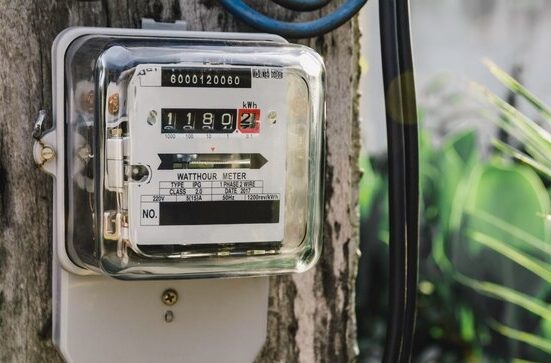In recent years, crowdfunding has emerged as a powerful tool for entrepreneurs across the globe, providing startups with an alternative route to financing their ventures. In Namibia, a country known for its small but growing entrepreneurial ecosystem, crowdfunding is becoming a significant player in the startup landscape. With limited access to traditional forms of funding, such as bank loans and venture capital, Namibian startups are turning to crowdfunding platforms to fuel their innovative ideas and grow their businesses. This article explores the role of crowdfunding in Namibia’s startup ecosystem, highlighting its benefits, challenges, and key platforms that are shaping the future of entrepreneurship in the country.
What Is Crowdfunding?
Crowdfunding is a method of raising capital through the collective effort of a large number of individuals who contribute small amounts of money, usually through an online platform. This method of funding allows entrepreneurs to access the resources they need without relying on traditional investors, banks, or financial institutions. In exchange for their contributions, backers may receive rewards, equity in the business, or simply the satisfaction of supporting a cause or project they believe in.
Crowdfunding can take different forms, including:
- Rewards-Based Crowdfunding: Backers receive non-financial rewards, such as early access to products, special offers, or acknowledgments.
- Equity-Based Crowdfunding: Investors receive equity or shares in the startup in exchange for their investment.
- Debt-Based Crowdfunding (Peer-to-Peer Lending): Entrepreneurs borrow funds with the promise of paying back the loan with interest.
- Donation-Based Crowdfunding: Funds are raised for a specific cause, and no financial returns are expected.
The Rise of Crowdfunding in Namibia’s Startup Scene
Namibia’s entrepreneurial ecosystem has faced challenges such as limited access to capital, especially for small and medium-sized enterprises (SMEs) and startups. Traditional funding sources like bank loans are often inaccessible to early-stage businesses due to high-interest rates, stringent lending requirements, and the lack of collateral. As a result, many Namibian startups are turning to crowdfunding to fill the gap.
Crowdfunding offers several advantages that make it an attractive option for Namibian entrepreneurs:
- Access to Capital: Crowdfunding platforms allow startups to reach a large pool of potential investors and supporters, increasing their chances of securing the funds they need to grow their business.
- Validation of Ideas: A successful crowdfunding campaign serves as a form of market validation, showing that there is genuine interest in the product or service.
- Marketing and Exposure: Crowdfunding campaigns can also act as a marketing tool, allowing entrepreneurs to promote their brand, engage with customers, and create a community of loyal supporters.
- Diverse Funding Sources: Crowdfunding provides access to a wide variety of backers, ranging from individual consumers to institutional investors. This diversity of funding sources can help startups avoid relying too heavily on one type of investor.
How Crowdfunding Supports Namibian Startups
Crowdfunding is playing an increasingly significant role in helping Namibian startups access the capital they need to bring their innovative ideas to life. Below are some key ways crowdfunding is supporting entrepreneurship in Namibia:
1. Overcoming Financial Barriers for Entrepreneurs
Startups in Namibia often face significant financial barriers that prevent them from accessing traditional forms of funding. High-interest rates, limited credit history, and the lack of collateral make it difficult for many entrepreneurs to qualify for bank loans. Crowdfunding platforms provide an alternative means of financing, giving startups the opportunity to bypass these traditional barriers.
Entrepreneurs in Namibia, particularly those in the tech, agricultural, and creative sectors, are increasingly turning to crowdfunding to secure initial capital. By offering rewards, equity, or donations, they can tap into a global community of investors and supporters who are willing to invest in promising ventures.
2. Creating a Supportive Community of Backers
One of the most powerful aspects of crowdfunding is the ability to build a community of loyal supporters. For Namibian startups, crowdfunding is not just about raising money—it’s about building a brand and fostering relationships with customers. Crowdfunding campaigns offer an opportunity for entrepreneurs to engage directly with their backers, listen to feedback, and make adjustments to their products or services accordingly.
The sense of community created through crowdfunding can lead to long-term customer loyalty and brand advocacy. Backers often become the first customers of the business, promoting the product to their networks and helping to spread the word about the startup’s mission and values.
3. Reducing Financial Risk for Entrepreneurs
Traditional financing methods, such as loans and venture capital, often come with significant financial risk. Entrepreneurs are typically required to provide collateral, give up equity, or take on debt that must be repaid within a specific time frame. This can create pressure and make it harder for startups to succeed.
Crowdfunding reduces financial risk by spreading the responsibility of financing across a large group of backers. With crowdfunding, entrepreneurs can raise the required funds without taking on debt or giving up too much equity. Furthermore, many crowdfunding platforms allow businesses to keep any funds raised, even if they don’t reach their full funding target, although campaigns are often structured to reach specific financial goals.
4. Driving Innovation and Market Research
Crowdfunding also serves as an invaluable tool for market research. By launching a campaign, entrepreneurs can gauge the level of interest in their products or services and test their ideas before committing significant resources to production. If the crowdfunding campaign is successful, it serves as proof that there is demand for the product or service.
This form of validation is especially important for Namibian startups, as it helps them refine their business models and make data-driven decisions before scaling. Entrepreneurs can also gather feedback from their backers, allowing them to iterate on their ideas and ensure they are meeting the needs of their target audience.
Key Crowdfunding Platforms for Namibian Startups
Although Namibia does not yet have many local crowdfunding platforms, global platforms are accessible to entrepreneurs in the country. Here are some of the most prominent platforms that Namibian startups can use to raise funds:
1. Kickstarter
Kickstarter is one of the most well-known crowdfunding platforms globally, and it is accessible to Namibian entrepreneurs. It is primarily focused on creative and innovative projects, including tech, design, and art. Namibian startups in these sectors can use Kickstarter to reach international backers and secure the capital they need to get started.
2. Indiegogo
Indiegogo is another popular crowdfunding platform that supports a wide range of industries, including tech, health, and consumer goods. Like Kickstarter, Indiegogo allows entrepreneurs to create campaigns and offer rewards in exchange for funding. It also offers flexible funding options, which means that even if a campaign doesn’t meet its financial target, the entrepreneur can still receive the funds raised.
3. GoFundMe
While GoFundMe is primarily used for charitable causes and personal fundraisers, it has also become a platform for entrepreneurs to fund social enterprises and small businesses. Namibian startups that focus on social impact and community development may find GoFundMe a suitable platform for raising funds and building a supportive base of backers.
4. Thundafund (South Africa-based)
Thundafund is a South African-based crowdfunding platform that supports startups and entrepreneurs in Southern Africa. While it is based in South Africa, it provides an excellent opportunity for Namibian entrepreneurs to tap into a regional network of backers. Thundafund is ideal for projects related to innovation, the arts, and community development.
Challenges of Crowdfunding in Namibia
Despite the many advantages of crowdfunding, Namibian startups face several challenges when using these platforms. Some of the key challenges include:
- Limited Awareness: Crowdfunding is still a relatively new concept in Namibia, and many entrepreneurs are unaware of the benefits it offers. More education and awareness campaigns are needed to encourage the adoption of crowdfunding as a financing tool.
- Access to Technology: While Namibia has made strides in internet connectivity, some entrepreneurs in rural areas still face challenges accessing reliable internet services. This limits their ability to run effective crowdfunding campaigns.
- Cultural Factors: In Namibia, there may be a cultural reluctance to share business ideas and seek external funding. Overcoming this mindset is essential for the growth of crowdfunding in the country.
Crowdfunding is rapidly becoming an essential tool for Namibian startups, providing an alternative route to financing that bypasses the traditional barriers faced by entrepreneurs. By offering access to capital, validation of business ideas, and a supportive community, crowdfunding empowers startups to bring their innovative ideas to life and thrive in a competitive market. While challenges remain, the potential for crowdfunding to transform Namibia’s entrepreneurial landscape is significant, offering new opportunities for both entrepreneurs and investors in the country.
For Namibian startups looking to leverage crowdfunding, platforms like Kickstarter, Indiegogo, and Thundafund present excellent opportunities to raise funds and gain exposure. As the crowdfunding movement continues to grow, it is expected to play an increasingly vital role in shaping the future of entrepreneurship in Namibia.













